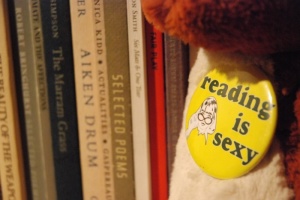“There are worse crimes than burning books. One of them is not reading them.”
So said the Russian poet Joseph Brodsky, who had more claim than most to know about books and crimes. Brodsky got his start writing in St. Petersburg during the heyday of Soviet oppression. In 1964, at age 23, he was arrested for being a poet and a “parasite” on society.
At his trial he bravely defended the ideas of free speech and creativity, but was inevitably found guilty of crimes against the state. He was sentenced to five years in a work camp and was eventually exiled from the country.

When he left he had nothing but a change of clothes and his typewriter, which was dismantled bolt by bolt at the border. “It was their way of saying goodbye,” he later joked. He lived the rest of his life in the United States and never returned to Russia.
Despite a life of loneliness and exile, Brodsky continued to believe that literature had the power to transform our ideas about ourselves and help establish our values about the world.
“What concerns me,” he said, “is that man, unable to express himself adequately, reverts to action.” Since the “vocabulary” of action is limited to our bodies, we end up expressing ourselves with violence, he said. Brodsky also said we “extend our vocabulary with a weapon when there should have been an adjective.”
He spent his time teaching literature at universities and giving public lectures, driven by a belief that literature, and especially poetry, should be made accessible to everyone. “Poetry,” he wrote, “is the only insurance available against the vulgarity of the human heart.”
Most of Brodsky’s English writings are essays, and he explores the variety of human experience as they are manifest in his favourite topic: literature.
